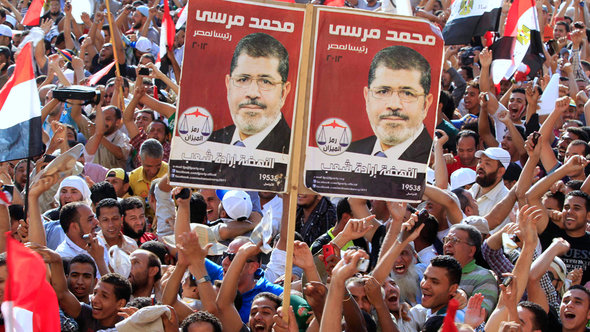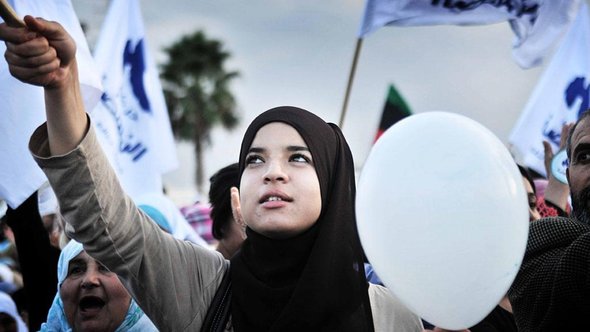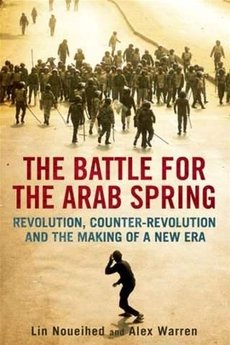Post-revolution Patchwork
During the Arab Spring, satellite television, social media and mobile phones created an "Arab public sphere" that functioned as a sounding board for the uprisings that led to either the toppling of despots or triggered liberalising reforms. Indeed, where those revolts succeeded, the first phase of the Arab Spring concluded with free parliamentary elections.
Yet as the British-Lebanese journalist Lin Noueihed and the long-time analyst Alex Warren confirm in their sweeping account of these uprisings and their aftermaths, the contests to seize the political high ground in these societies after the Arab Spring look very different from territory to territory.
Even though each nation will be grappling with a variety of issues including the role of Islam, the nature of democracy and the revival of moribund economies, these struggles are likely to result in very different types of states. Whatever the outcome, they are not going to replicate the distinct brand of liberal democracy familiar to those in Europe and the West.
Situation varies from country to country
In Tunisia, there is a vibrant civil society composed of NGOs, trade unions and human rights and feminist groups that are putting up stiff resistance to the first vote's surprise big winners, Ennahda. This Islamist movement, a progressive religious force that explicitly recognises women's rights and secular law, is unique to Tunisia. In fact, its moderation has made it the target of hardline Salafists, who have come out of the woodwork since the Jasmine Revolution. Down the line, it might be moderate secularists and moderate Islamists who team up to keep extremists at bay and burnish a democratic model for other countries in the region.

The situation in Egypt, where the political influence of Islam is significantly more present and potent, is very different. Yet, according to the authors, it will not be the Muslim Brotherhood that presents the greatest impediment to democratic transition but rather the Egyptian military, which is still lurking in the shadows. The military "was an entrenched part of the atrophied economic and political system which the protesters had sought to remove," write Noueihed and Warren. "There is an inherent paradox in entrusting the armed forces with the task of supervising deep and enduring political, economic and social change that, if successful, would fundamentally downgrade its own power."
In Bahrain, it is not religion that divides the country's 1.2 million inhabitants but Sunni-Shia fault lines.
Libya, on the other hand, will grapple with Gaddafi's distinct legacy for years to come. The country is an amalgam of ethnic, regional and tribal groupings long divided by intense factionalism. Moreover, the country is awash with arms, enough to fuel a civil war lasting several years. "Any unbalanced system that fails to use oil revenues in a more efficient and balanced way ... will not last long," predict Noueihed and Warren.
The role of the Islamists
The Battle for the Arab Spring is lucidly written and includes a wealth of astute analysis on the politics of the region, from Morocco to Oman. It answers questions I had long been thinking about, as well as others that hadn't occurred to me.
Why, for example, did Islamist parties do so well in the first elections when they appeared so peripheral to the uprisings? For one thing, the Islamist parties, like the Muslim Brotherhood and Ennahda, have structures that long predate those of the upstart revolutionaries at the Arab Spring's core.

Moreover, even if they were banned, there were always the mosques to disseminate their message. Also, their vision of a just society was translated into the philanthropic work the Islamic community carried out where the state fell short in terms of public services and welfare. Lastly, the Islamists had a cash infusion from domestic and foreign sources that the secular activists couldn't hope to match.
The authors also devote considerable attention to the effect and nature of Islam, although they pointedly reject the simplistic interpretation of Islamism as a monolithic and dominant factor crushing the democratic hopes of secularists (and because this is so explicit, one can only surmise that the publishers and not the authors opted for the inappropriate term "counter-revolution" in the book's subtitle).
As for Islam, they emphasise that a win for Islamist political parties does not automatically compute into a loss for democracy. The Islamists range from Ennahda, one of the first Islamist movements to endorse democracy, to extremists, such as the Salafists, who indeed strive to impose oppressive restrictions on state and society. Observers have to distinguish "between the radical and the moderate, the non-democratic and the democratic, the violent and the peaceful", they argue.
Tough democratic and economic challenges
But the democratic process, at least in terms of elections, is the order of the day and, once in power, those elected will have to confront the enormous problems at hand, such as economic malaise, massive youth unemployment and corruption. The scope of these blights will force them to compromise and cooperate, and, should the root problems persist, will eventually unseat them.

"It is only by engaging with Islamist parties who win at the ballot box and are the legitimate representatives of the voters, and by allowing them to be tainted by the same inevitable failures and criticism that afflict every government, that post-uprising countries like Tunisia and Egypt can move beyond religion as a deciding factor in politics."
For those countries that have held elections, the next battleground is the forging of new constitutions. The authors point out that unlike Turkey, very few Arab states have had fully secular constitutions. Moreover, the role defined for religion in the constitutions is just one marker to gauge what kind of societies these will be. Issues of minority rights, decentralisation, judicial independence, the separation of powers, limitations on security services, media freedom and others will serve as critical signposts.
The post-Arab Spring democracies in the region aren't going to look like those in France and Germany, or even Turkey, and to expect this, argue the authors, is naive. Even in Tunisia, Ennahda's concept of democracy is one bound together by the spiritual and cultural values of Islam. "It is unrealistic," conclude the authors, "to expect Arab countries to establish in a single year the separation of politics and religion that took centuries in Europe."
Nor do the post-Arab Spring countries have anything like the Marshall Plan that benefited post-war Europe or the guiding hand of the European Union that smoothed the way for post-communist Central and Eastern Europe. This is all the more reason for the EU, among others, to lend them a helping hand without trying to prescribe in too much detail what they should do to deserve it.
Paul Hockenos
© Qantara.de 2012
The Battle for the Arab Spring: Revolution, Counter-Revolution and the Making of a New Era by Lin Noueihed and Alex Warren is published by Yale University Press.
Editor: Aingeal Flanagan/Qantara.de
